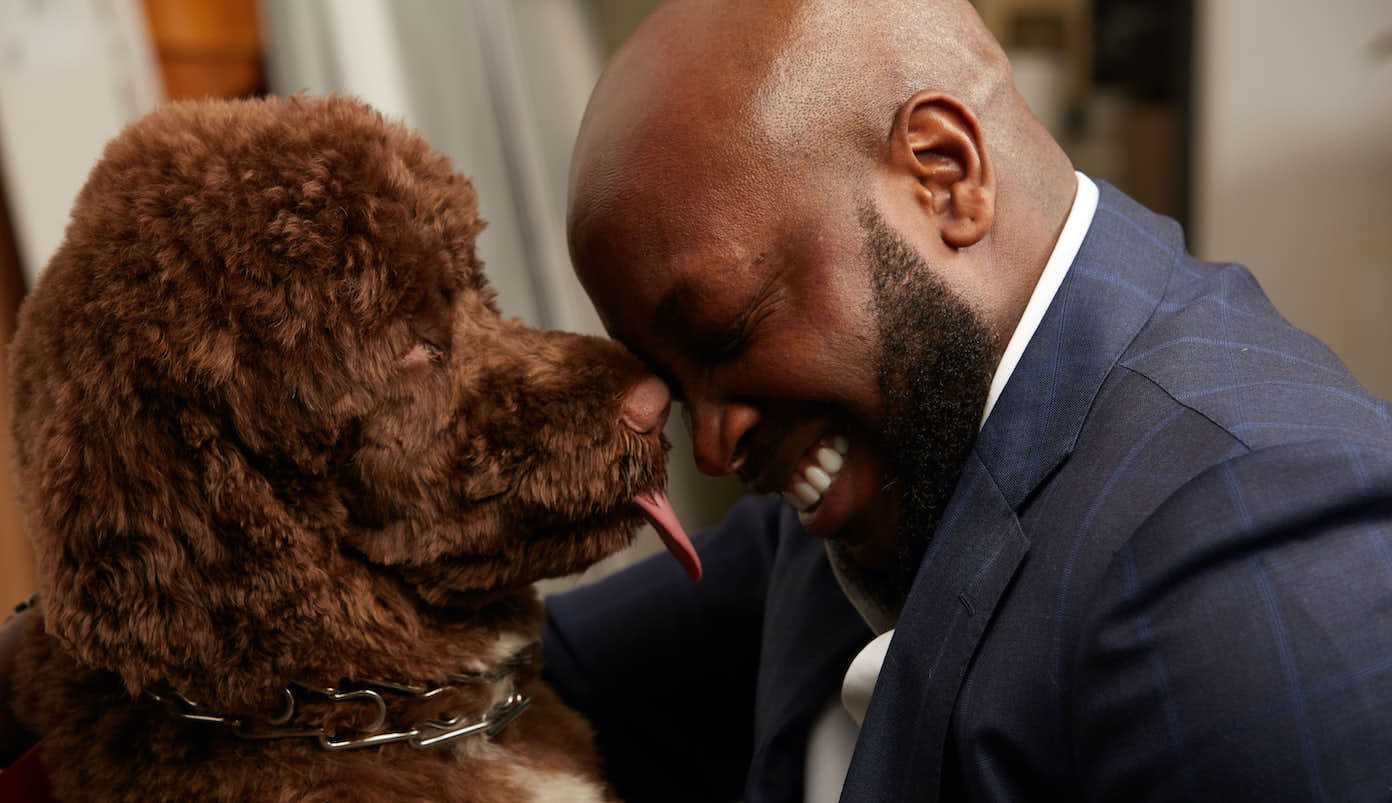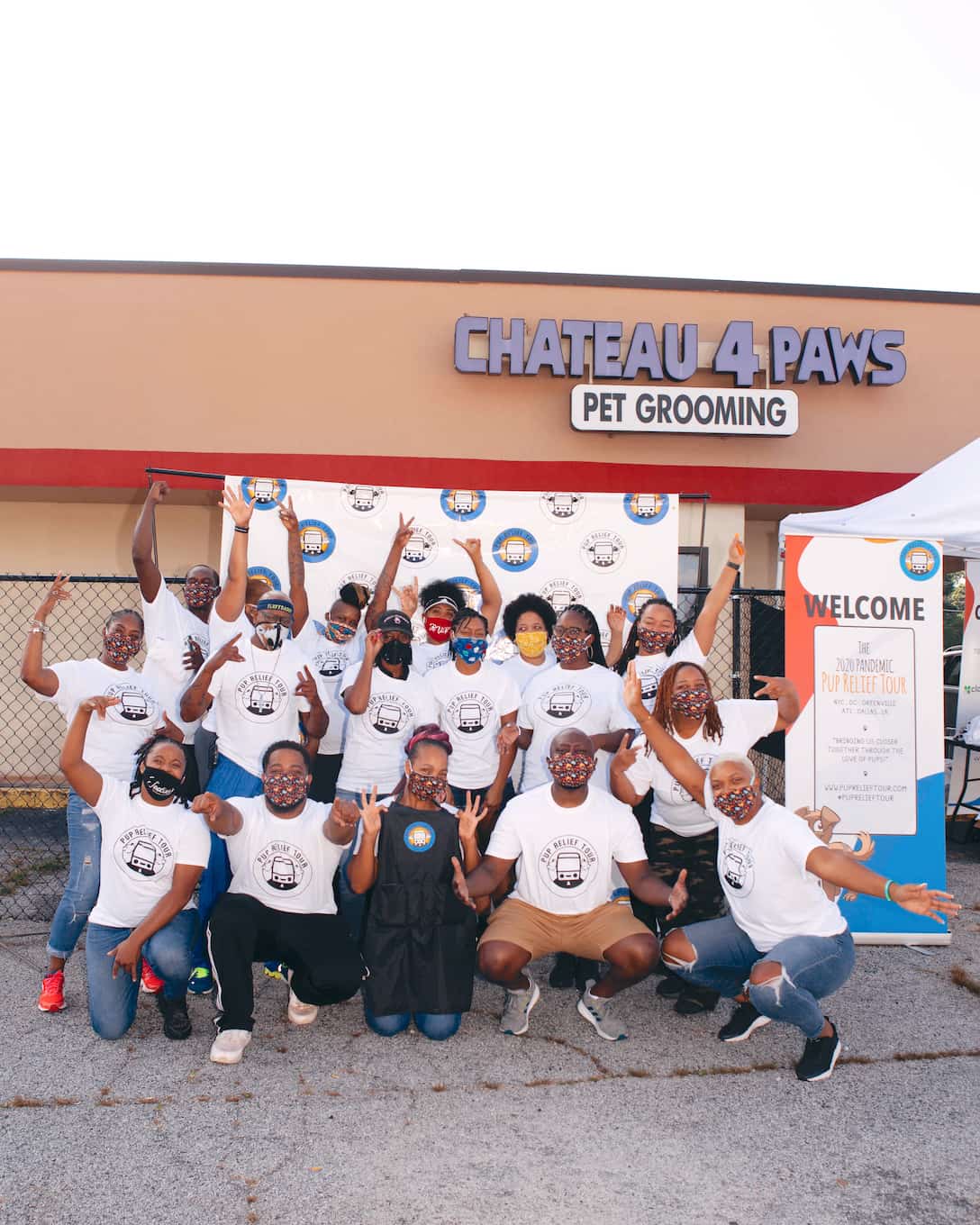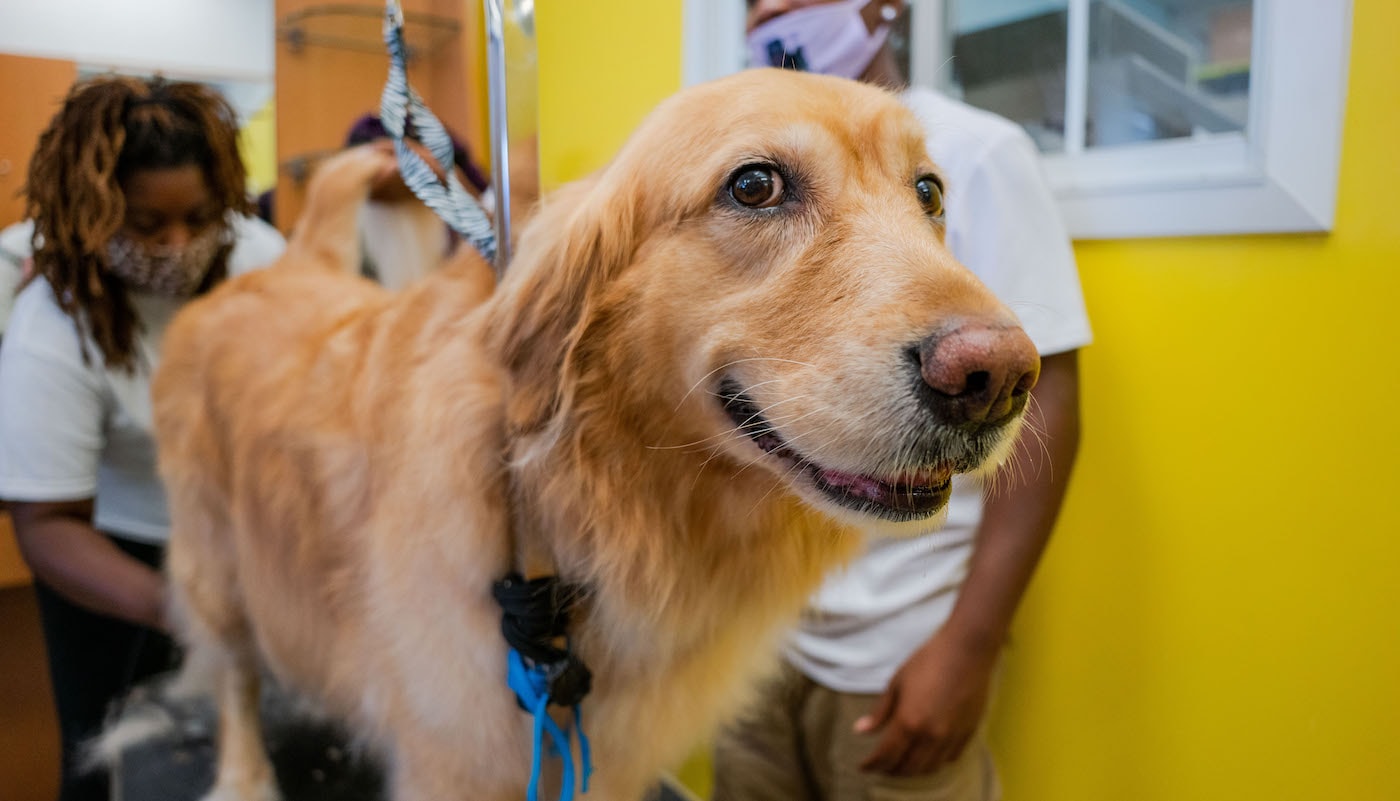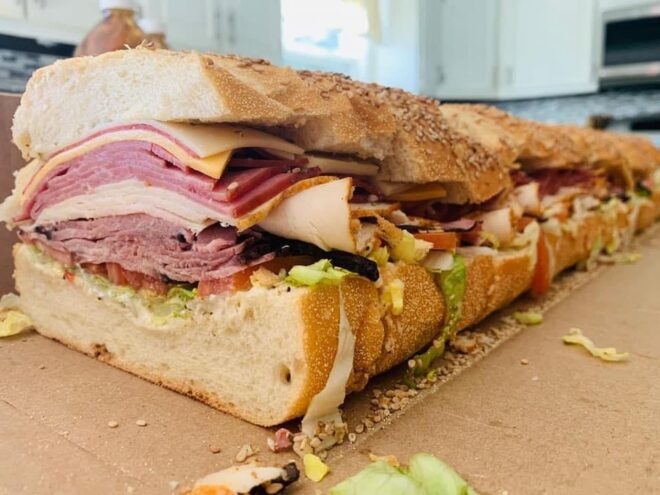Pandemic Pup Relief Tour
Editorial Team
7 min read
Our Meet the Merchant series features Q&As with real-world Clover merchants. Read our full catalog for innovative ideas and real-life stories of small businesses in action.
In this installment, we reconnect with Harlem Doggie Day Spa owner Brian Taylor after he completed his Pandemic Pup Relief Tour. He shares how he created the tour, some anecdotes from the road, and his exciting plans for the future. For more background on Brian and his incredible business, please read our first feature on him.
Clover: Welcome back Brian! Can you remind our readers what the Pandemic Pup Relief Tour was all about?
Brian Taylor: Of course! I’m part of a social media group of Black pet groomers, and I’ve been looking for a way to support my colleagues and help pets for quite some time. Since Harlem Doggie Day Spa has had to be closed for so long, we decided to take our grooming services on the road.
We packed up a van equipped for grooming and set out on a 6-city tour. In each city, we partnered with local groomers to take care of as many dogs as possible at no cost. We know pet owners are hurting for cash like the rest of us, and we wanted to make sure their pets were kept healthy, clean, and happy despite the challenges.
In total, we groomed about 600 dogs, and serviced about 30 more with nail trimming. Overall, we had about 60 groomers as well as 25 additional bathers and assistants, all volunteering their work. We’re so grateful for every single person who donated to our GoFund me to help us raise almost $27k. We are very thankful for our official sponsors, Andis, Clover, and Advet Hygienics, plus many more of our favorite brands like Chewy and Hydra for their support and donations!

Clover: What is the significance of Black workers in the grooming industry?
Taylor: The pet industry is enormous. A couple years ago we were at $60 billion annually, now we are at $90 billion. There are over 80 million pets in America. During the pandemic, even more people are adopting from shelters and rescuers to have more companionship at home.
But pet grooming and pet care are industries not traditionally associated with black professionals in this country. In addition to providing the minority of Black groomers with more of a platform, we are also hoping to reach out to more Black kids who don’t know that there’s a career for them in the animal industry.
That was a statement we really wanted to make with this tour. And all of us coming together was a big deal. We helped a lot of people. One of the upshots was the diversity of experience among participating volunteers. We had some groomers who had been in business for 20 plus years and others who just began their career this year.
There was a lot of continual education going on where the experienced groomers would help the less-experienced groomers technically, or give them business advice on everything from marketing to pricing structures. The opportunity to teach, share and learn was definitely one of the highlights of the tour that inspired a culture of team spirit and community which is rare in this industry.
Our industry is very competitive. There’s a possessiveness around clients. There’s no team spirit because most groomers in this industry are independent contractors. They work on commission.
It was great to craft an informal setting where groomers can learn from each other, because there’s so much learning that takes place when you deal with animals. Normally, we have industry shows where people can go buy products, take continuing education, and mingle. That has been missing because of the pandemic.
So the fact that 50 of us could work together and hang out afterwards was really magical. We had dinners, we went out for drinks afterwards, and talked about important issues in the grooming industry. That part was a huge surprise, and I knew it was something to treasure. It was incredibly rewarding.
Clover: Why is grooming important for animal health?
Taylor: Grooming is very important to the health of a dog, especially long haired, double coated dogs and especially during the warm summer months. Coats that are knotted are a breeding ground for fungi, diseases, fleas, and ticks.
If a dog is carrying disease, parasites, or fungus, it will be carrying all those germs back into your apartment. It’s going to be jumping on your bed and possibly shedding its fur everywhere. During the COVID pandemic, we’re all aware of how important handwashing is. The same applies to pets.
Additionally, properly groomed dogs feel better and are more comfortable—their coat is ventilated so that they can breathe better, and their skin stays healthy.

Clover: How did you fund this endeavor?
Taylor: We didn’t charge our clients at all. We raised almost $27,000 through GoFundMe. We got a lot of donations from our vendors: shampoos, grooming mats, harnesses, clippers, and more. I added about $20,000 from my own funds to make it happen. I knew I had to pay my staff, and added a PR person, project manager, and road manager to the team.
We didn’t raise all of the money like I expected. But I was very passionate about this and I just wanted to invest in something that really meant something to me. We still have our GoFundMe campaign open, because obviously we want to do a second tour, but usually first efforts are the most expensive because of startup costs.
Clover: Any particular dogs stick out in your memory?
Taylor: Yeah, one lady from New York, her auntie is a survivor of COVID, and she hadn’t been able to get her dog groomed. The dog came in so matted. She said the dog hasn’t been groomed in six to eight months.We were able to really do a good job and de-mat that dog. You could tell after that the dog was happy.
When a dog is matted like that, most groomers charge a lot more money because there’s a lot more risk on our end. When we try to relieve those mats, there’s a higher chance of us injuring the pup or the pup injuring us. So the client saved about $200 and the dog looked great.
Clover: How are you managing during this pandemic?
Taylor: I think that in every single industry, people need to figure out a way to connect to their community again. During COVID, I lost a family member. I also lost a good mentor, and have been so concerned about my friends, staff, and customers. I’ve been dragging myself along, saying “am I doing the right thing? Is this where I want to be?”
These are the questions that keep coming back. It felt great to stop worrying about my own problems and help others for a few weeks. It helped my spirits to come back and reconnect with my motivation.
Clover: What are you planning for the future?
Taylor: We’re hoping to make the tour an annual event and reach different cities and communities. Right now we are focusing on planning a December tour with one or two locations where we will go and help people during the holiday. From there we’ll continue to find ways to do bigger and better things to help people and their pups.
Related Posts
Boardroom Hairstylists
Amin’s Corner: Putting the “neighbor” back in the neighborhood deli
Popular Topics
Stay In Touch
Sign up and learn more about Clover.
Thank you for your subscription!
Recent Stories
- Is your business a victim of shrinkflation? Don’t pay more for shorter receipt rolls.
- How to buy a restaurant
- How to evaluate employee performance like an enterprise company
Please share your contact information
to access our premium content.
Thank you for sharing your contact information.
Download Now





